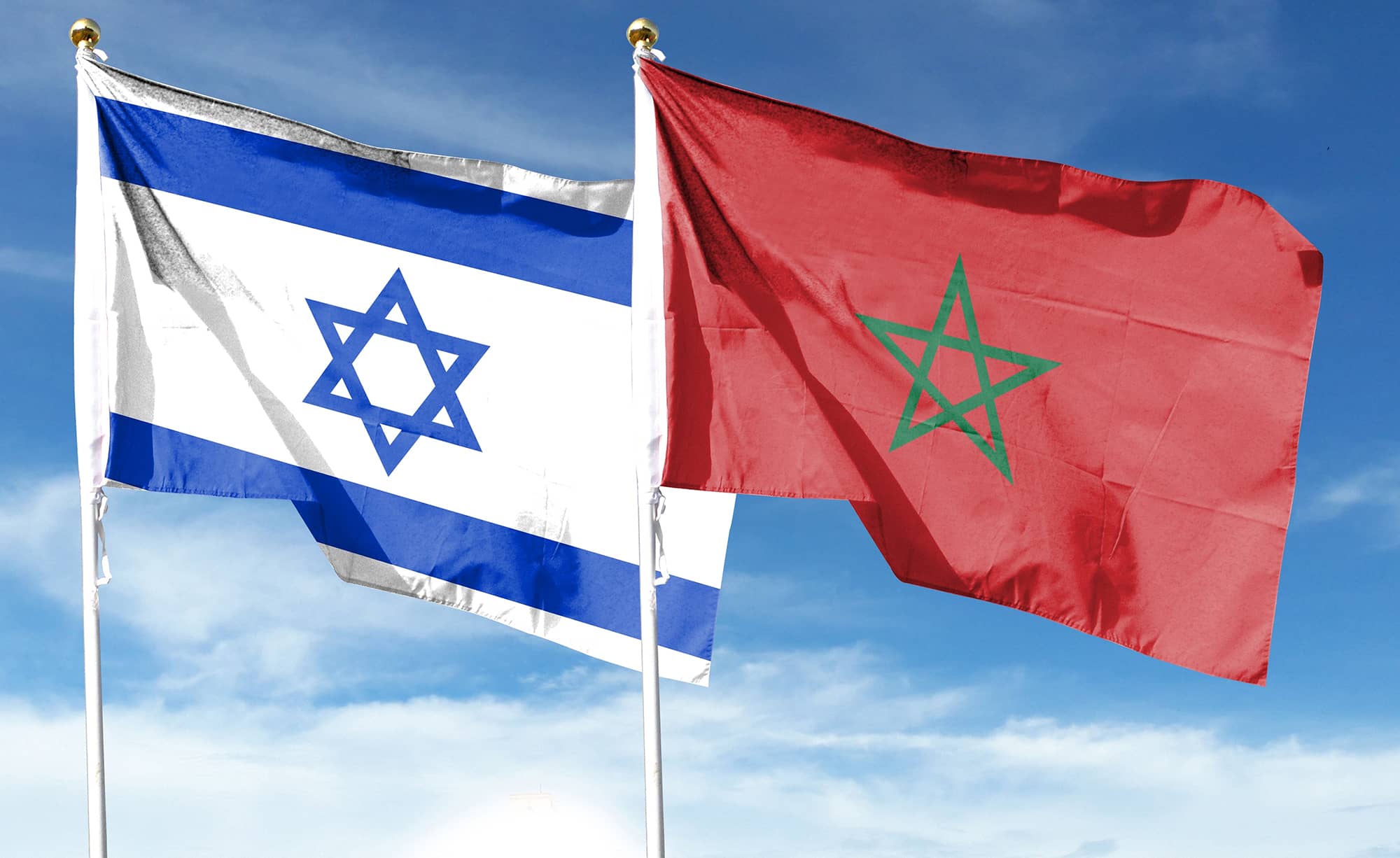The Moroccan-Israeli relationship: new horizons and the prospects for cooperation in Africa

By Col. (ret.) Dr. Eran Lerman & Nacima Kerouad
Executive Summary
As its remarkable history indicates, the relationship between Morocco and Israel is unlike any other in the region. Even in these troubled times, it holds great potential for growth and positive influence beyond the two countries’ borders, especially in Africa. The ties once again came out into the open in 2020, but they have existed, with ups and downs, for over six decades (as detailed in the appendix to this study). What makes the relationship unique is that it rests simultaneously upon strong strategic commonalities, and upon aspects of identity politics in both countries:
- In the face of radical elements, the two countries came to share their perspectives of the dangers inherent in the power politics of the region. In the past, it was the Soviets and the pan-Arabist nationalists who lent support to the enemies of both Morocco and Israel. Today, it is Iran and its associated totalitarian Islamist forces (as well as the authoritarian Algerian regime, now drawing closer to Tehran) who do so. Recent developments – including growing levels of Algerian hostility, ambitious Iranian meddling in the Sahara and growing Russian subversion in the Sahel – have given rise to closer Moroccan-Israeli security cooperation than ever, even if present circumstances have made it less overt.
- Morocco, moreover, is also a proud inter-cultural bridge. It is self-defined as such in its 2011 Constitution, which is indeed extraordinary in terms of its broad view of the country’s national heritage: Morocco counts the Jewish/ Hebraic tradition as one of the sources of its modern identity. In Israel, meanwhile, the role and contribution of Moroccan Jews has come to be not only recognized but celebrated as a significant and enriching aspect of its national heritage.
Both factors played a role in creating a firm relationship, albeit not free from occasional tensions. The strategic commonality was translated long ago into a pattern of intelligence cooperation and arms supplies, with the latter greatly expanded after formal relations were established in 2020. Meanwhile, even well before the Abraham Accords, the pull of tradition has led to a steady flow of tourism, with tens of thousands of Israelis visiting Morocco every year. Sadly, tourism has remained largely one-sided.
The relationship, which has also been enhanced by trade, investment, and a growing range of economic and developmental projects, was put to the test by the war in Gaza. Over the years, Morocco – as the standing chair of the Al Quds (Jerusalem) Committee of the Organization of Islamic Cooperation – saw itself as a custodian of Muslim rights in Jerusalem, and since the war began, has lent diplomatic support to the general Arab position calling for an end to the war. Morocco has also joined resolutions at the United Nations that Israel views as problematic. Still, in November 2023, Morocco rejected calls to cut off or downgrade relations, and in 2024, went ahead with the acquisition of advanced satellite capabilities from Israel Aerospace Industries (IAI). Rabat’s standing in Israel, moreover, facilitated the provision of Moroccan aid to the population of Gaza.
Thus, Morocco’s positions on aspects of the Palestinian question do not and need not stand in the way of enhanced security and economic cooperation. Moreover, the door for other forms of strategic cooperation – including joint development projects in Africa – remains open. As Morocco eyes strategic developments to its south – in Mauritania, Senegal, Gambia, Ivory Coast and ultimately Nigeria, a source of energy supply to Morocco and through it to Europe; as well as the growing turbulence in the Sahel – there are reasons to assert that the need for such cooperation has never been as acute as it is now, in the face of dangerous foreign meddling in the continent.
Above and beyond the bilateral dimension, and for the same strategic reasons that sustain it, the two countries are well-positioned to present their potential cooperation in Africa as beneficial to the interests of the United States (an ally of both – in the case of Morocco, going all the way back to 1777!), of Europe, and of "like minded" – i.e., pro-Western nations in the region – and to seek their support in such projects. This could be similar to the model of support and investment created through the Israeli-Jordanian-Emirati triangle. Once revived, the "Negev Forum" could play a supportive role, and so can the Union for the Mediterranean. American backing would be important. But the creative energy and the innovative spirit needs to be generated by ongoing bilateral engagement. A discreet consultative framework (involving the relevant government ministries and agencies, as well as non-governmental players) should be established for this purpose as soon as possible.